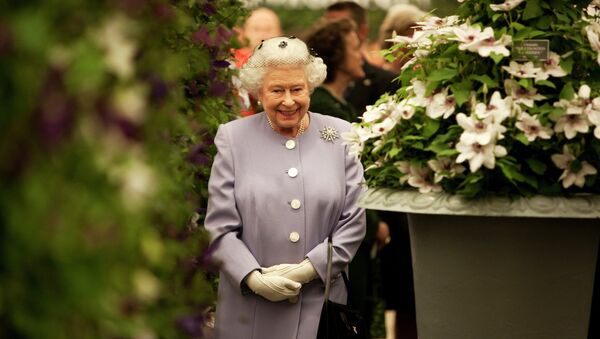LONDON, December 5 (Sputnik) — New DNA analysis of the remains of one of England’s most well-known monarchs, King Richard III, has led to fresh questions over the legitimacy of the present British Royal family, the House of Windsor.
Historians remain split on the issue, but some researchers believe George Rex of Knysna in South Africa, was the legitimate first-born son of King George III of England. Now new speculation of a mismatch in the DNA of Richard III has reignited questions over the rightful inheritors of the throne of England.
“We do believe that there were strong ties between my ancestor George Rex of Knysna and the British Royal family at the time,” Rex said, adding that “There are contemporaneous documents, showing the Royal Family went hunting on the Rex estate during visits to South Africa. Why was there this strong connection when George Rex was the supposed son of a distiller?”
In a 1997 documentary, film maker Kenneth Griffith revealed “disturbing evidence” that George Rex was the “forgotten” legitimate son of King George III and should have become King of England. Griffith controversially claimed George III’s first marriage to quaker girl Hannah Lightfoot caused a scandal in the ruling establishment of the day, which was embarrassed about the King having married a commoner.
Royalist supporters maintain the documents Griffith produced were 19th century forgeries, aimed at discrediting the Monarchy, but despite descendants of George Rex willing to undertake DNA comparison testing the current Queen and her heirs remain unlikely to provide their own samples.
“Regarding DNA testing the current monarchy, I would welcome any scientific investigation that would reveal the facts that would stand up to peer review,” Trevor Rix, an administrator with a DNA comparison project, told Sputnik Thursday.
“Having said that, the current monarchy is very stable and has an enormous beneficial impact on the country both at home and abroad. I would therefore not want to see the boat rocked too much,” Rix added.
“Although we only have the one Y-DNA test on a Rex descendant of George Rex to go on, that single test matches test results of many descendants of Rix families whose ancestors predate George III,” Rix told Sputnik.
“So, as with the Richard III case, the DNA does not lie. Both cases illustrate that hearsay and descendancy on paper may well lie,” Rix added.
A study published this week in the Nature Communications journal, following DNA tests on the remains of Richard III, produced clear evidence of infidelity in the Royal family line.
Scientists remain uncertain when the break in linage may have occurred, but Dr Anna Whitelock of the University of London told the BBC that any break in the family tree would be unlikely to affect on the current status of the Queen.

